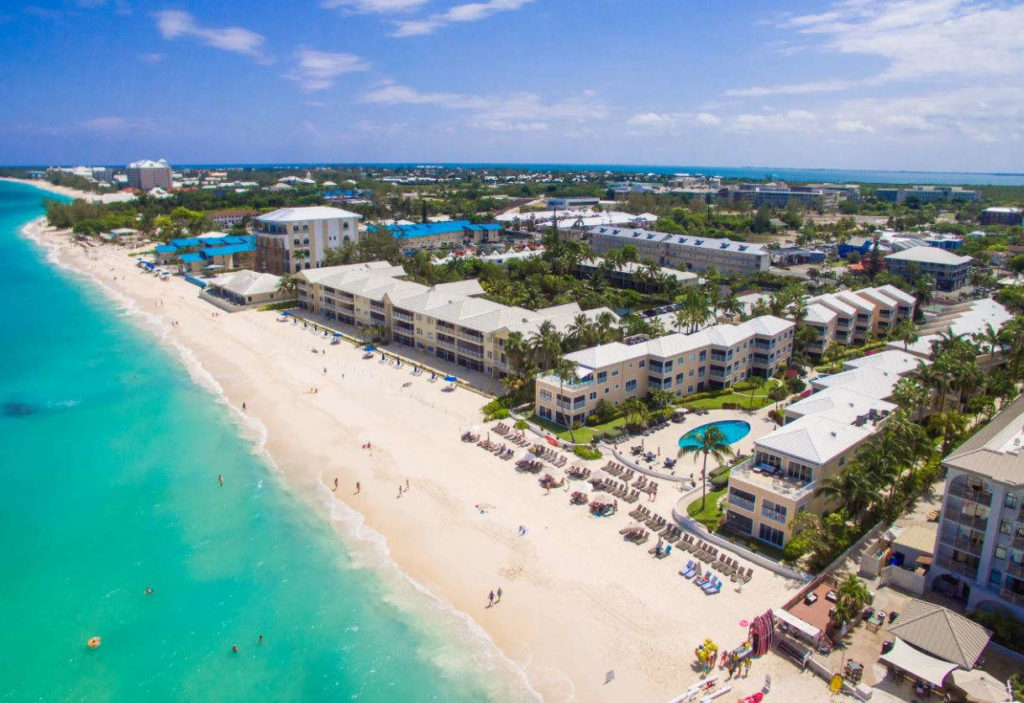It is no surprise to anyone that the real estate market in the Cayman Islands has been booming now for several years. Prices continue to rise in nearly all market sectors from condos on Seven Mile Beach to interior land parcels to single-family homes. This even includes industrial and other types of property. Inventory continues to remain very low and most properties are sold in short order and many are selling very quickly.
On Seven Mile Beach, historically you would see in excess of 100 transactions for a strong active market. And in a slower market this would drop by half. However, though the transaction numbers drop the prices do not drop, due to these being primarily cash purchases and without any annual tax implications, which means there are no adverse pressures to sell, owners can simply wait the market out, which is how the prices are held.
Coincidentally, Cayman’s economy continues to grow. As reported in the Cayman Compass a few weeks back, Cayman’s economy grew 3.3% in 2018 after a 3% growth in 2017 primarily driven by record numbers of stayover and cruise tourists, as well as a construction boom. On the other hand, the US Federal Reserve cut its benchmark interest rate by a quarter percentage on September 18th for the second time in as many months and additional rate cuts are projected in the future to continue to buoy the US economy as they head to elections at the end of next year. With this reduced rate, it has a knockdown effect on our banking rates in the Cayman Islands which makes it easier for the purchaser to buy property, keeping our market strong.
But can Cayman continue on this upward trajectory and how, if at all, is this connected to the United States especially with next year’s Presidential election?
Traditionally, as the US gets closer to an election, the Cayman market slightly softens as a reaction to the US market. Many investors go into a bit of a holding pattern as they wait to see what’s going to happen with the election. Historically our economy benefited more when Republicans were in office, but now the landscape doesn’t seem to be affected as much as you would think with respect to which political party is in office.
The good news is the Cayman Islands is a relatively small market that doesn’t rely on a huge amount of activity in order to maintain its strength and vitality. Historically, when the Cayman Islands real estate market does slow down, it’s not a crashing of prices, but rather a softening in the number of transactions. Given that property owners in Cayman aren’t faced with the additional financial burden of annual property taxes, there is less external pressure to sell compared to other markets. Most owners, especially along Seven Mile Beach, can afford to hold on to their properties and wait for the market to correct itself.
Added to this is the reality that the population in the Cayman Islands is growing. Approximately, 68,000 people now call Cayman home and this is projected to reach 100,000 in less than 10 years. Which amounts to approximately 2500-3500 population annual growth.
There are several factors contributing to the projected population growth including Cayman’s tax-neutral environment, relocation for lifestyle reasons, as well as the implementation of the economic substance law. Plus birth rates and local company growth have to bring in staff
The population continues to grow as many people are relocating to Cayman for the incredible lifestyle and friendly people the islands offer including semi-retired people, businesses and corporations taking advantage of the country’s tax neutrality, as well as those who have been long-time residents who can now apply for Cayman status.
With our unsurpassed environment, top-rated schools, safety, family-friendly communities, and easy accessibility to offshore destinations with more than 25 direct flights to 21 metro areas, Cayman is a very desirable place to live. As a work-life balance continues to become more important, a family lifestyle is becoming paramount. With Cayman’s central location, business people can easily fly for a day or two of meetings or a few days in Europe and then return home for the weekend. Additionally, many foreign residences work remotely allowing them more flexibility in choosing where they’d like to live.
Similarly, with the new economic substance law coming into effect earlier this year, more Cayman-based companies will have to physically be on island, which also adds to the population growth, as staff will have to be present on island.
These trends will not only continue, but will expand in future years, leading to more residents, and buyers, and thus a strong real estate market.
New Property Developments & Real Estate Market Opportunities
So, where are all these people going to live? As you’ve probably read, new development building is at an all-time high and is happening all over the island. Right now, a lot of the development focus is on mid- to high-end projects. There is already and will continue to be, a need for housing at lower prices. Given land prices, many of these developments will be a bit more of a drive to George Town. The biggest challenge for more economical developments is the hard costs associated with a new development including increasing land costs and costs for infrastructure such as roads and underground utilities, impact fees and business costs. Additionally, Cayman’s overall infrastructure will need to keep up with the expanding population growth, which over the last 10 years has been moving in the right direction.
As we look to the future either from a foreign-influenced standpoint or from one of domestic growth and expansion, the overall economy and thus real estate market will continue to see growth over the next few years. Even with any potential slowdown, our relatively small marketplace, as well as tax neutrality, will most likely ensure minor ebbs and flows versus huge market swings.
